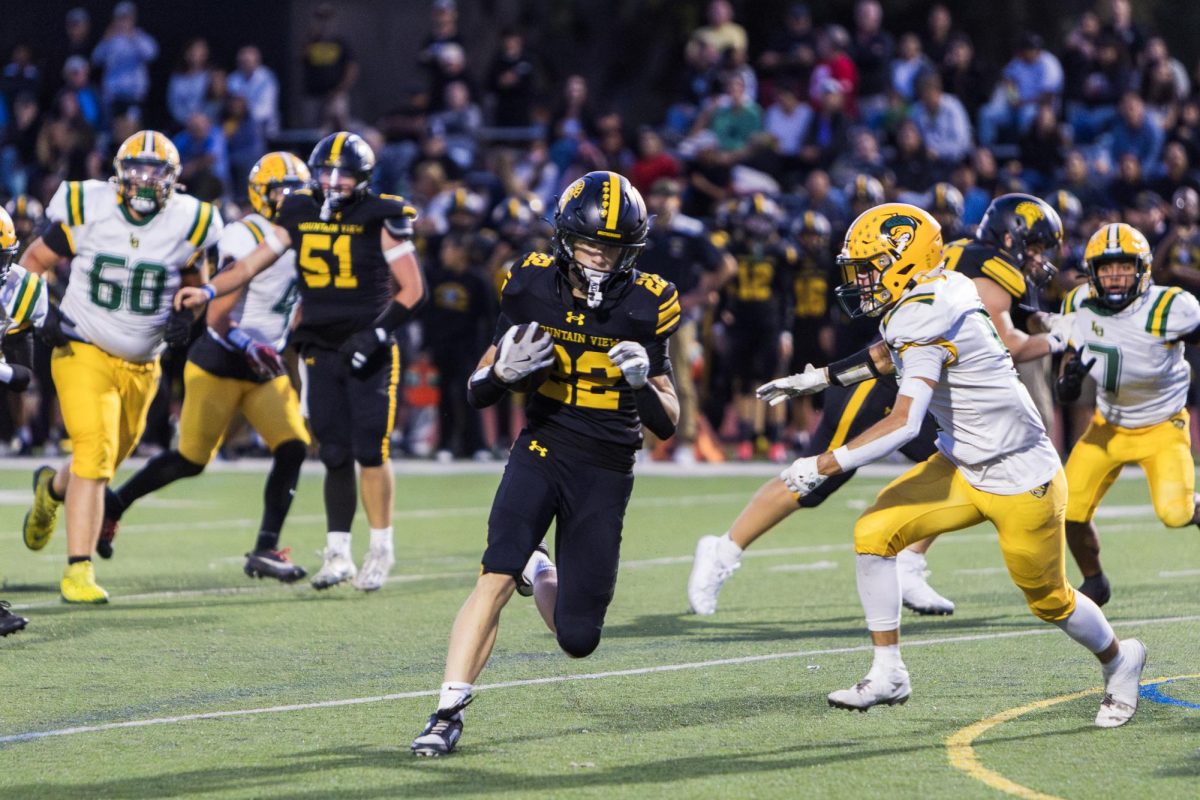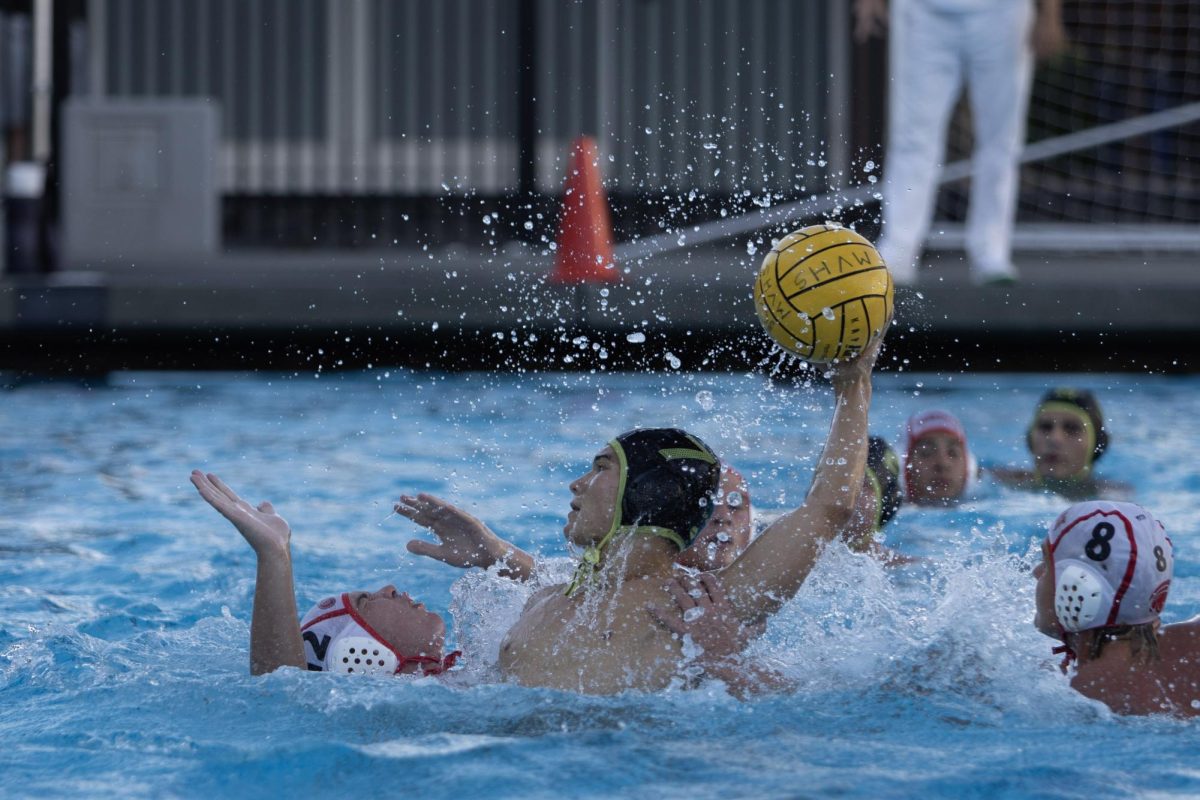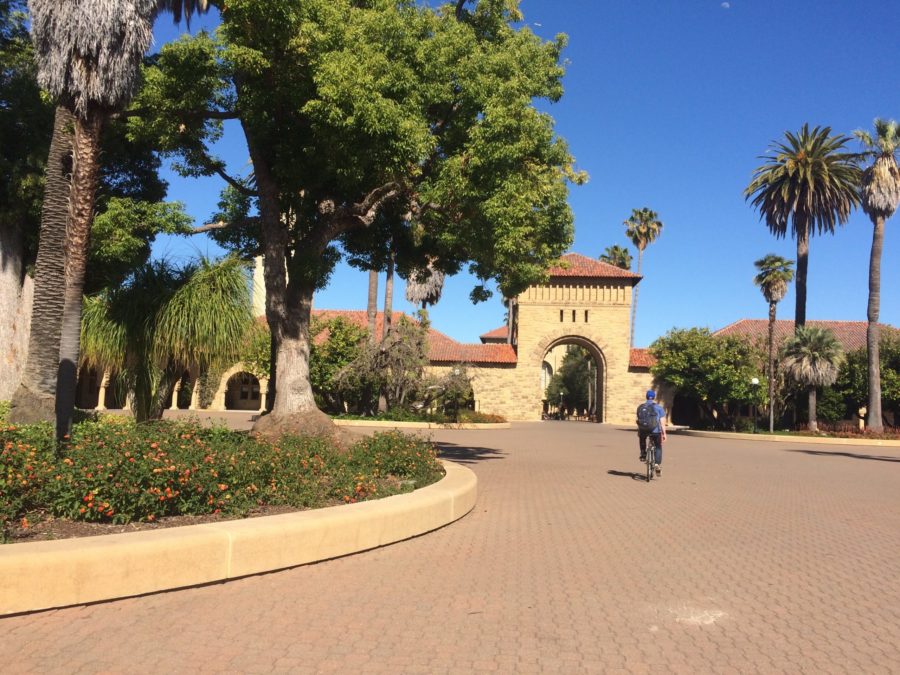In the past few weeks many seniors, including myself, have apprehensively logged onto web portals or opened acceptance letters to competitive colleges. For those who choose to enter the competition for a highly coveted spot at a prestigious university, and many at our school do, admittance often represents the payoff of years of late nights and sacrifice. Attending a “big name” school is also a powerful status symbol to much of our student body and Silicon Valley at large.
Given the height of emotion and our college-going culture, it is unsurprising that gossip about why someone was accepted or denied to a school is not uncommon as competitive seniors are disappointed by their results or disappointed on behalf of a friend or classmate.
Speculation on traditionally underrepresented minority students, or URM, which is defined by the UC system and most others as primarily students with Black, Latino, Native American, and South Pacific ancestry, who gain admission to highly competitive institutions sometimes turns to questions about to what degree race played in their success over similarly qualified peers.
I’ve come to expect to overhear the occasional sly “We all know why he got in” or more overt “How did she get in and you didn’t? She’s Hispanic? Well there you go” every college season from upperclassmen.
race-based gossip has greater implications. It not only reveals but propagates misconceptions about affirmative action,
As someone with mixed Latina and white ancestry who applied to fairly competitive schools and occupies many academically competitive spaces at school, this has put me into a few awkward conversations over the years.
While casual gossip does not often warrant significant attention, race-based gossip has greater implications. It not only reveals but propagates misconceptions about affirmative action and does not help move any thoughtful conversation about affirmative action’s merit further.
Both URM and non-URM scholars continue to argue in favor of affirmative action as ensuring equity or against affirmative action as discriminatory, and some have offered potential alternatives such as switching to income-based affirmative action. I don’t know what the “correct” answer is, if there is one, and since everyone has inherent bias depending on their ethnic identity is it is a difficult topic to discuss with a clear mind.
Without understanding how affirmative action works, we cannot have productive conversations about it.
Spreading the impression that race would have a significant effect on one’s admission status promotes a largely unsupported misconception about the weight affirmative action has on admissions. The 2003 Supreme Court decision Grutter v. Bollinger ruled that race is legally only permissible to be a small factor in college decisions that carry the same weight as extracurriculars. Given this, along with the high volume of students applying to elite schools from a variety of backgrounds, it is unlikely that a student would gain admission solely because of their race just as they would be unlikely to gain admission solely because they participate in a particular extracurricular.
In fact, according to the New York Times, Black and Hispanic students are even more underrepresented at elite colleges proportional to national populations as of 2017 than they were 35 years prior, despite affirmative action having supposedly accelerated since.
propagates the racist assumption that most URMs belong at lower levels of higher education while entry into institutions that symbolize the American elite is inherently an act of charity or a social experiment.
Though the plaintiffs filed an appeal this February, a Massachusetts district court ruled against the Students for Fair Admission’s in SFFA v. Harvard University in their claim that affirmative action was the cause of alleged discrimination against Asian Americans applying to Harvard University.
Not only does racialized gossip promote belief in an overestimation of what factor race has in elite college admissions that has actually been proven, it also promotes prejudice.
Students who are part of URM groups who gain admission to prestigious institutions without an obvious competitive advantage over non-URM classmates who did not are often immediately labeled as affirmative action beneficiaries while students who are not part of UM groups are not questioned as much.
This is harmful because it unintentionally propagates the racist assumption that most URMs belong at lower levels of higher education while entry into institutions that symbolize the American elite is inherently an act of charity or a social experiment.
Overestimating the weight of affirmative action, and unfairly resenting classmates for potentially benefiting from it encourages opinions to be made up in people’s minds that are not backed up by research or thought. It also draws popular attention away from actual proven and commonplace causes of unjust admissions decisions such as massive private donations and personal connections.
This type of discourse also encourages divisions within a senior class that create a negative environment for everyone, especially URM students who are already underrepresented in higher education and competitive classes at our school. Even though I think most instances are more out of spite than prejudice, racialized gossip is often a reminder of what sets me apart from a majority of my classmates in AP and Honors classes, and this is likely far more pronounced for students with full URM ancestry.
Many students applying to elite colleges are so used to competition that the instinct to compare and criticize each other is understandable.
draws popular attention away from actual proven and commonplace causes of unjust admissions decisions such as massive private donations and personal connections.
All competitive students regardless of ethnic background should not use this competitive energy to spread misinformation and resentment through our school community of any kind whether connected to big concepts like affirmative action or just about individual students. Instead, our student body, especially upperclassmen, should make a collective effort to make this a time to try to support each other, even when it is hard.
However disappointing a result may be, the ability to apply and realistically have a chance at attending an elite school at all usually requires a fairly large amount of privilege. The alternative to attending an Ivy League is in most cases still something to be excited about.
Competitive students will both create a kinder and more intelligent atmosphere in the school and feel better themselves by being mindful about keeping emotions in check so as not to spread harm. It is also imperative that we refrain from analyzing other students and focusing on the numerous opportunities there will be in the future.



































